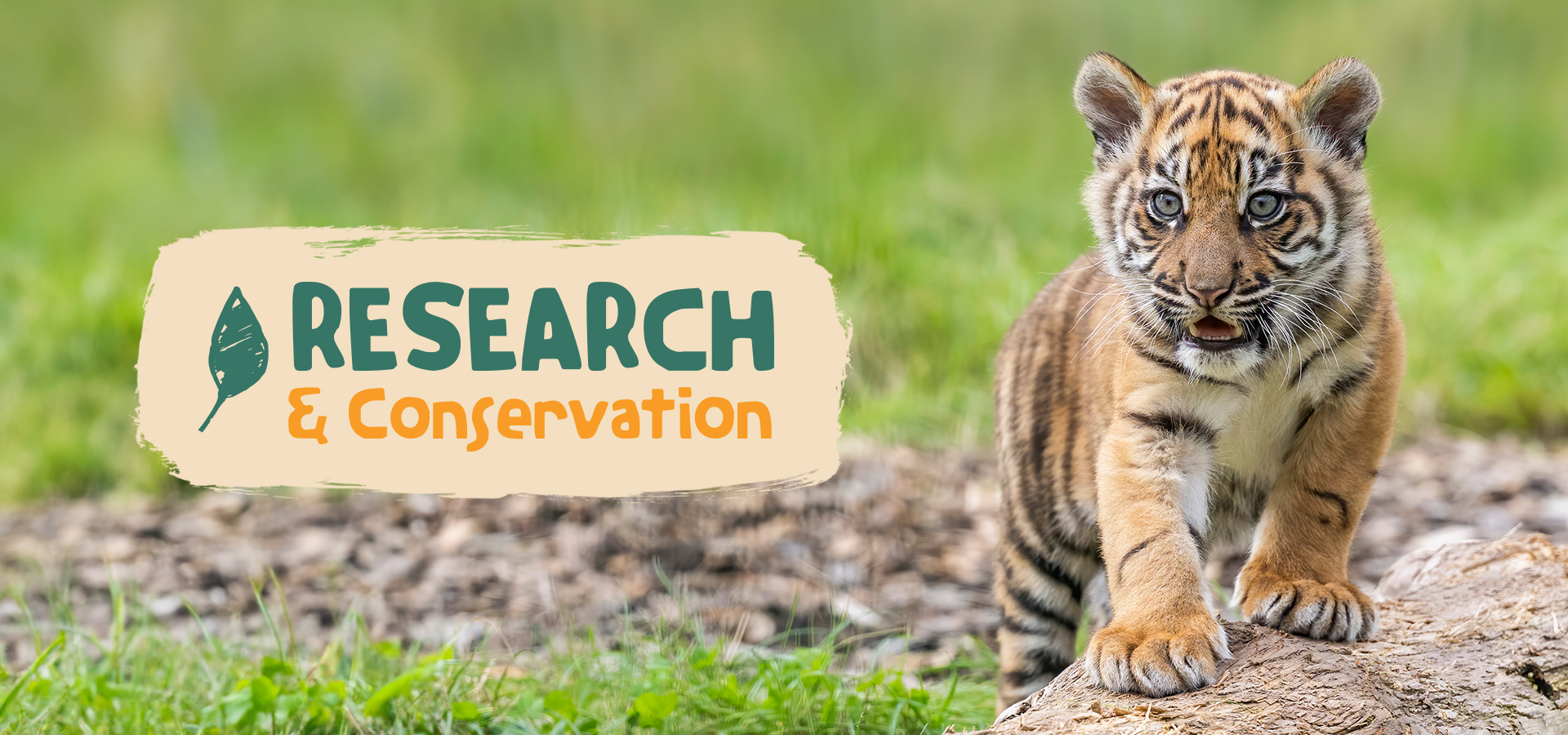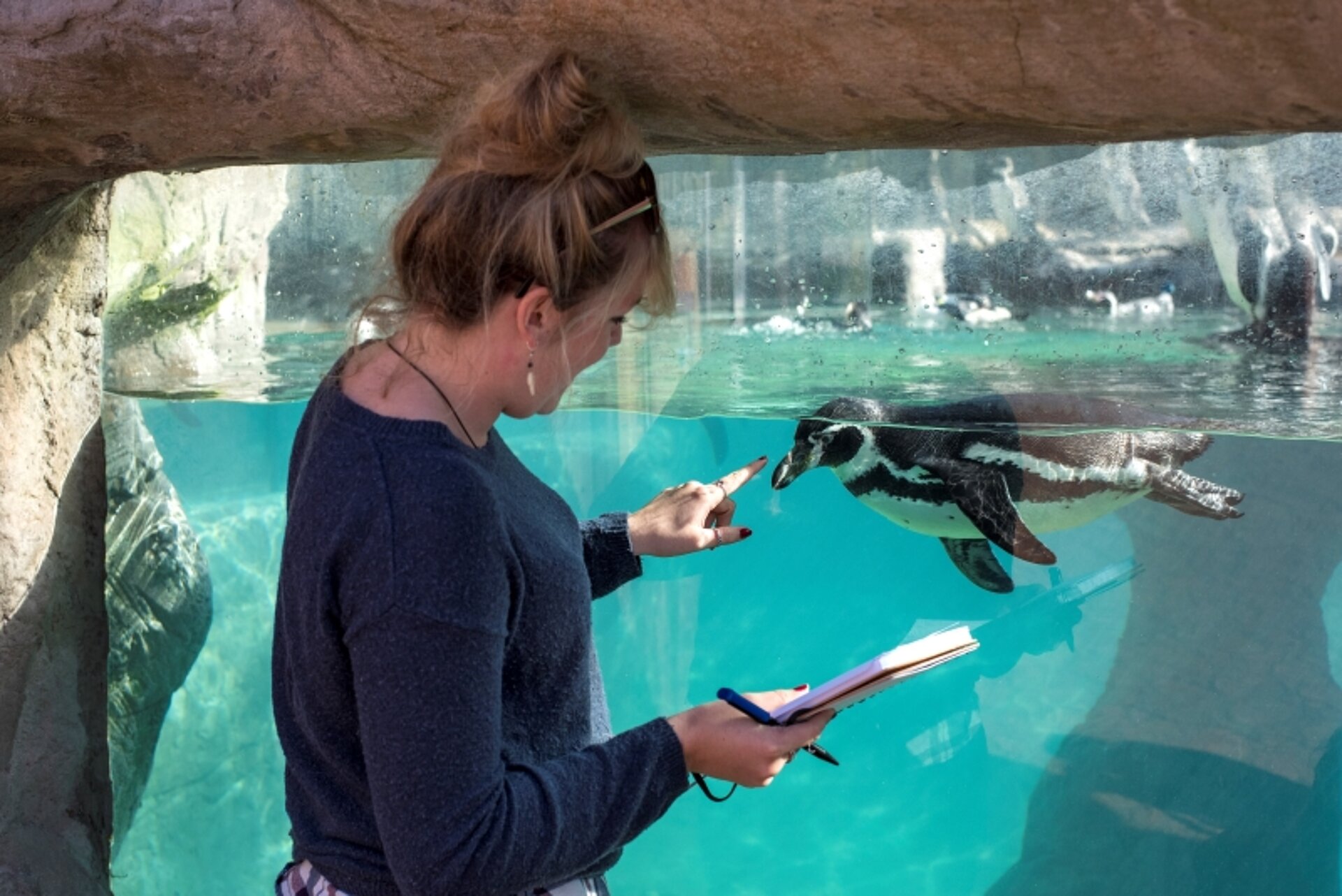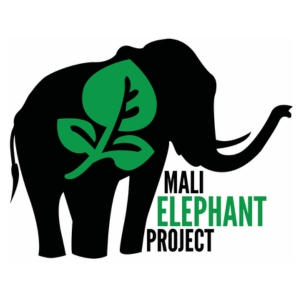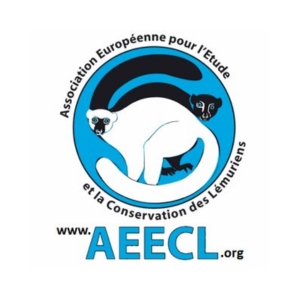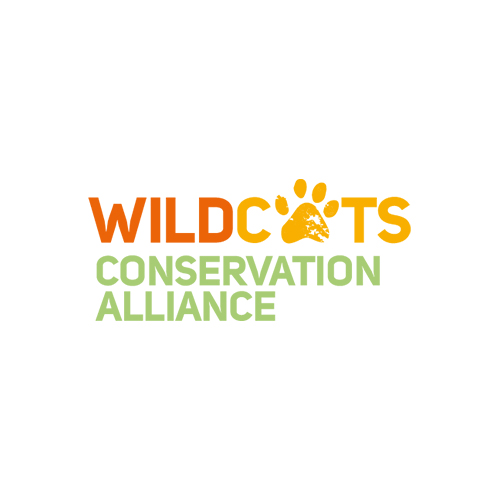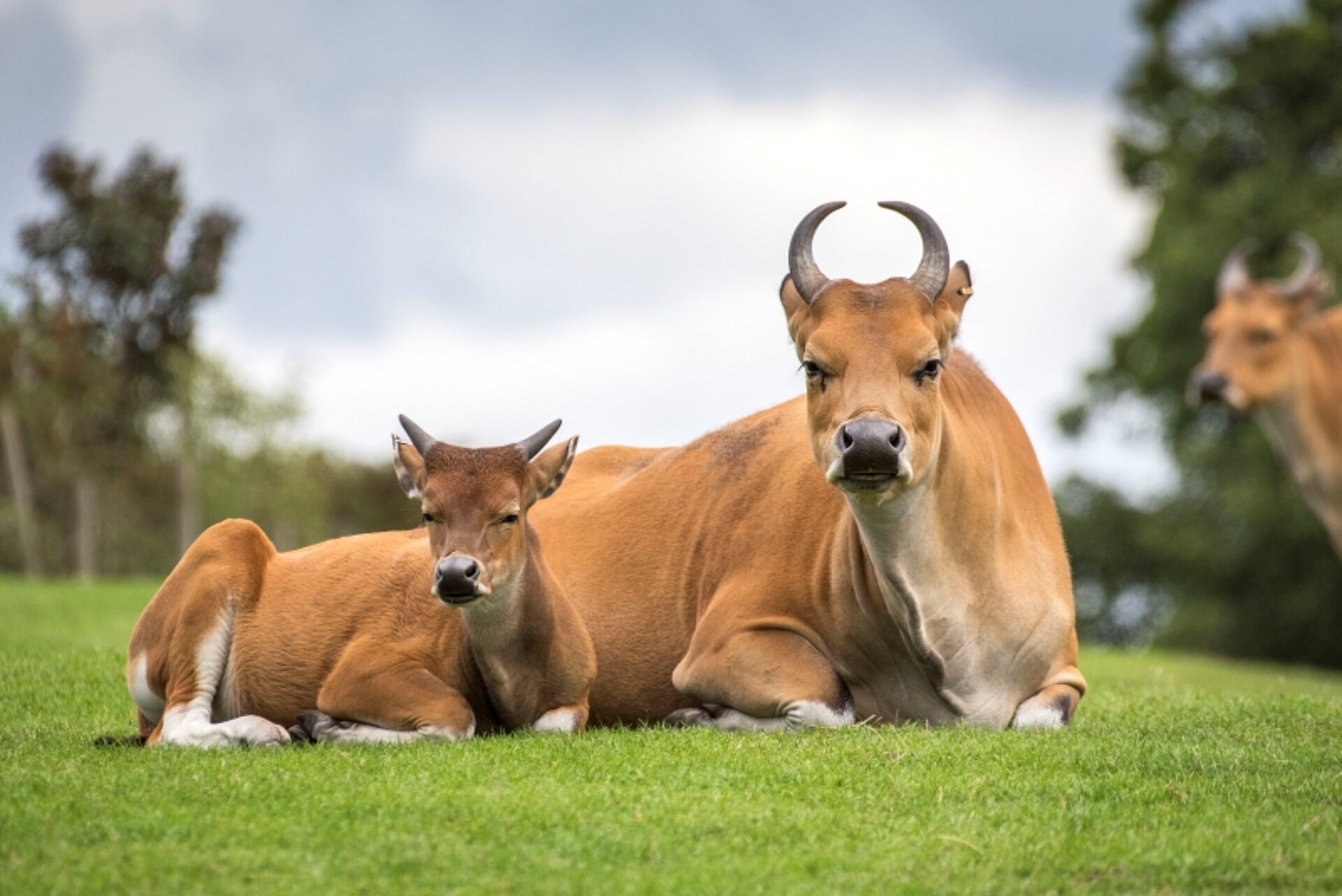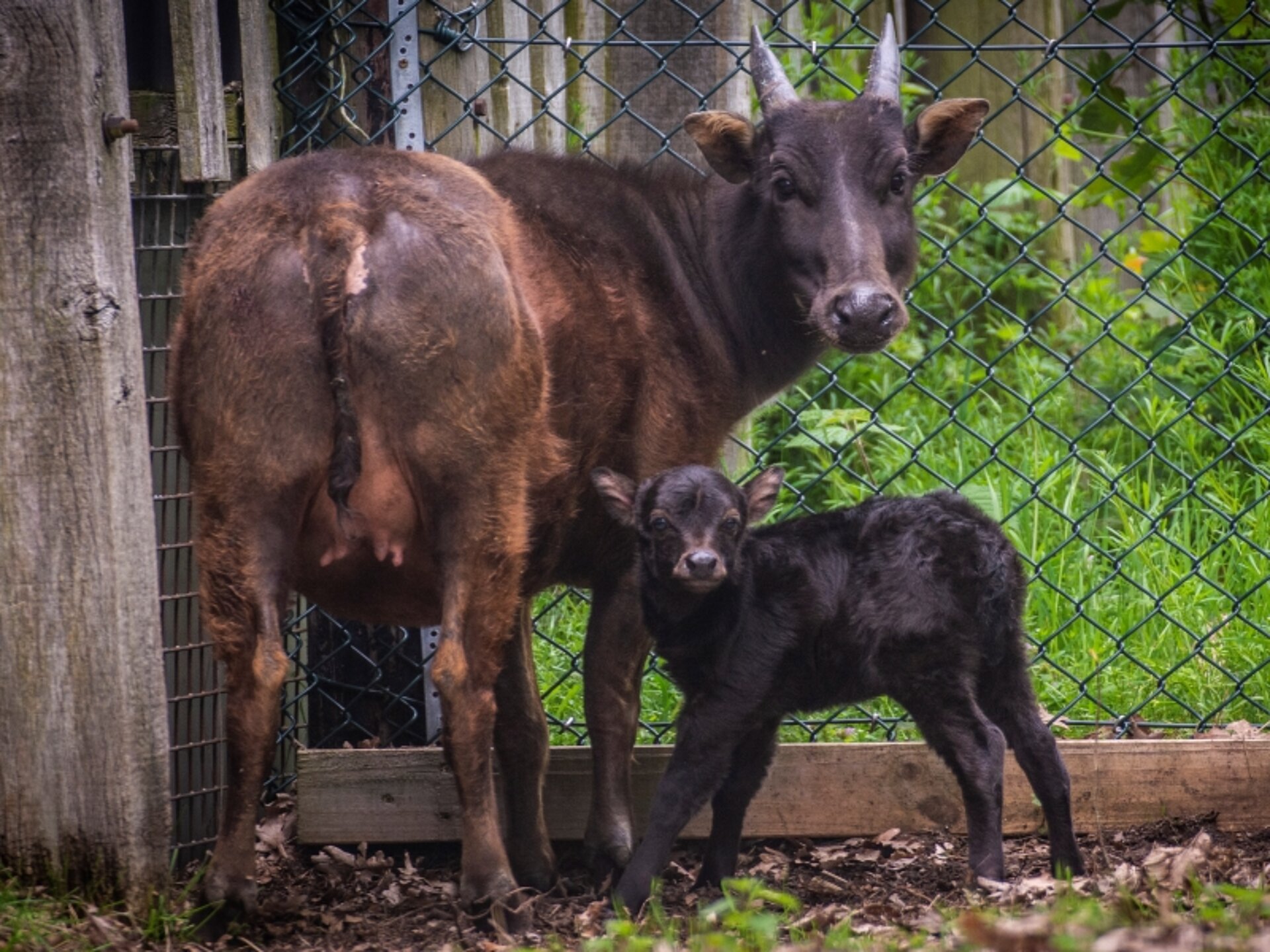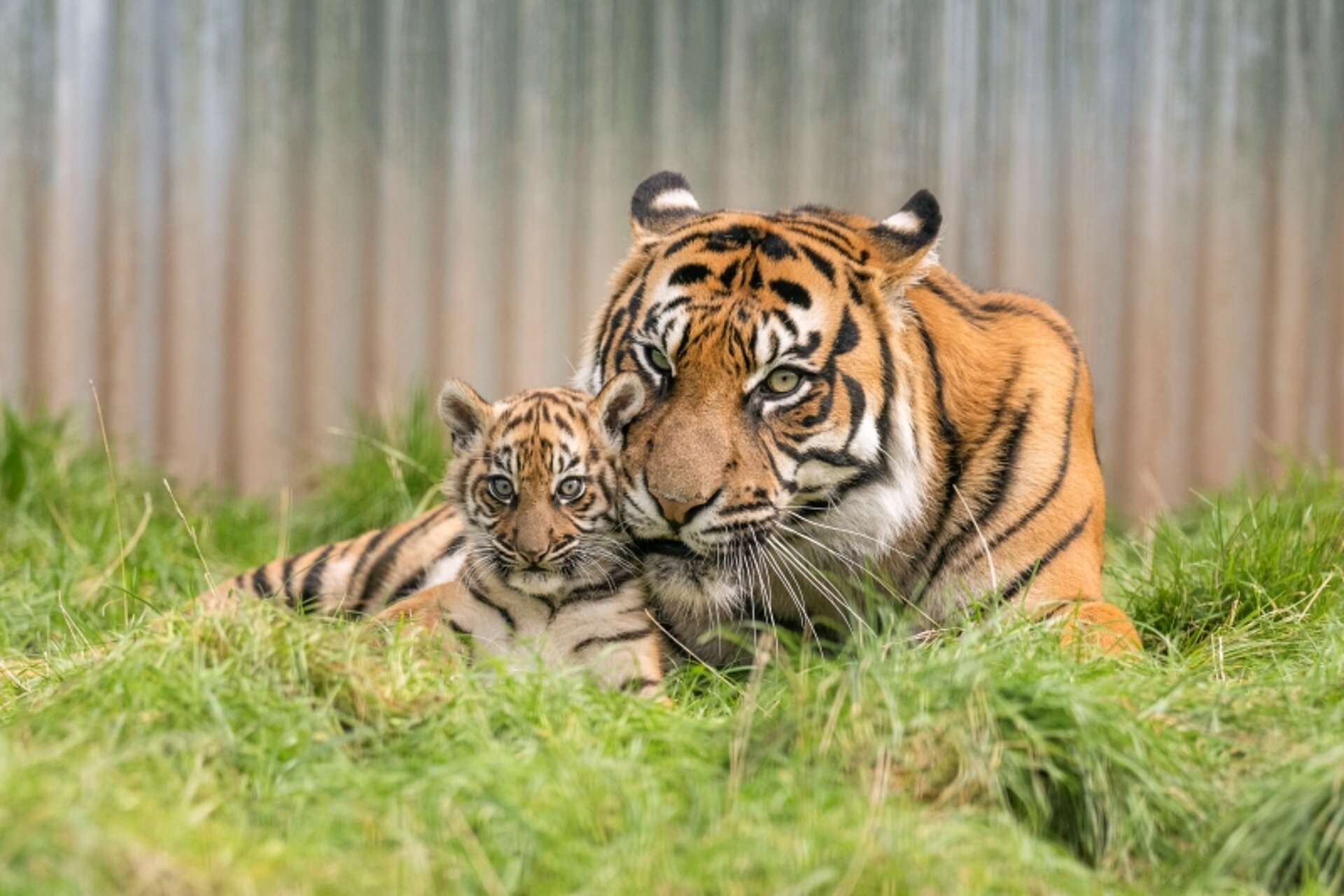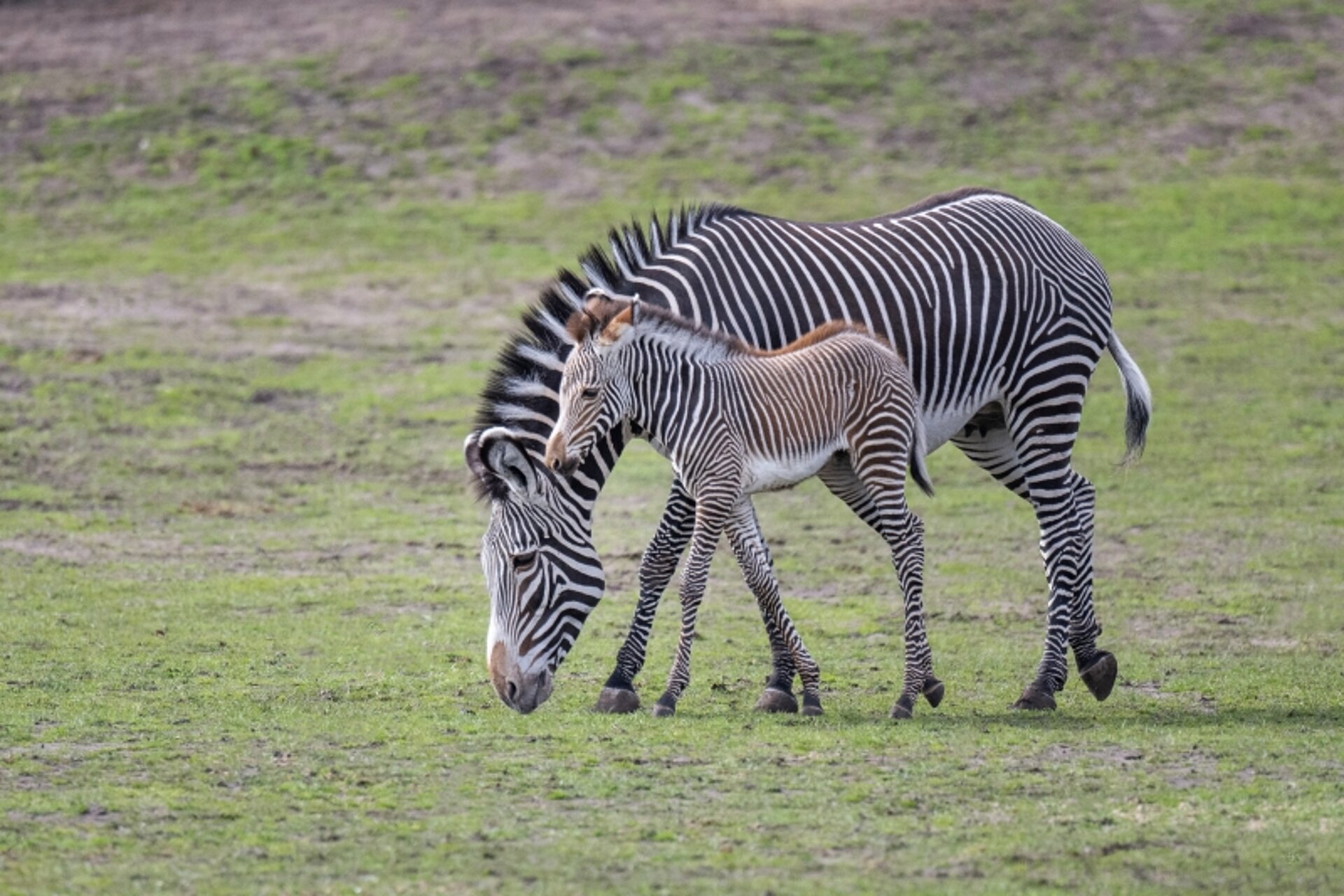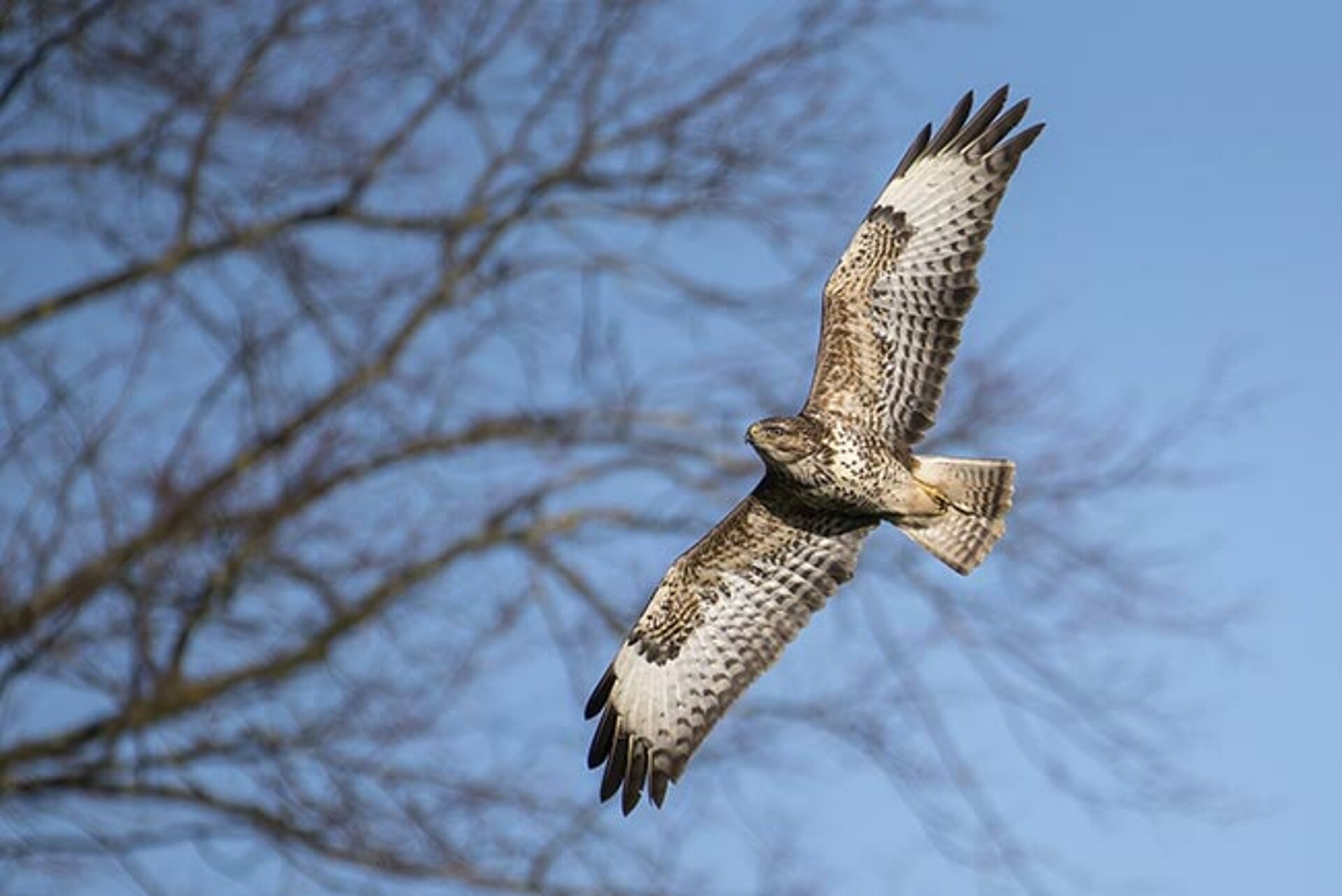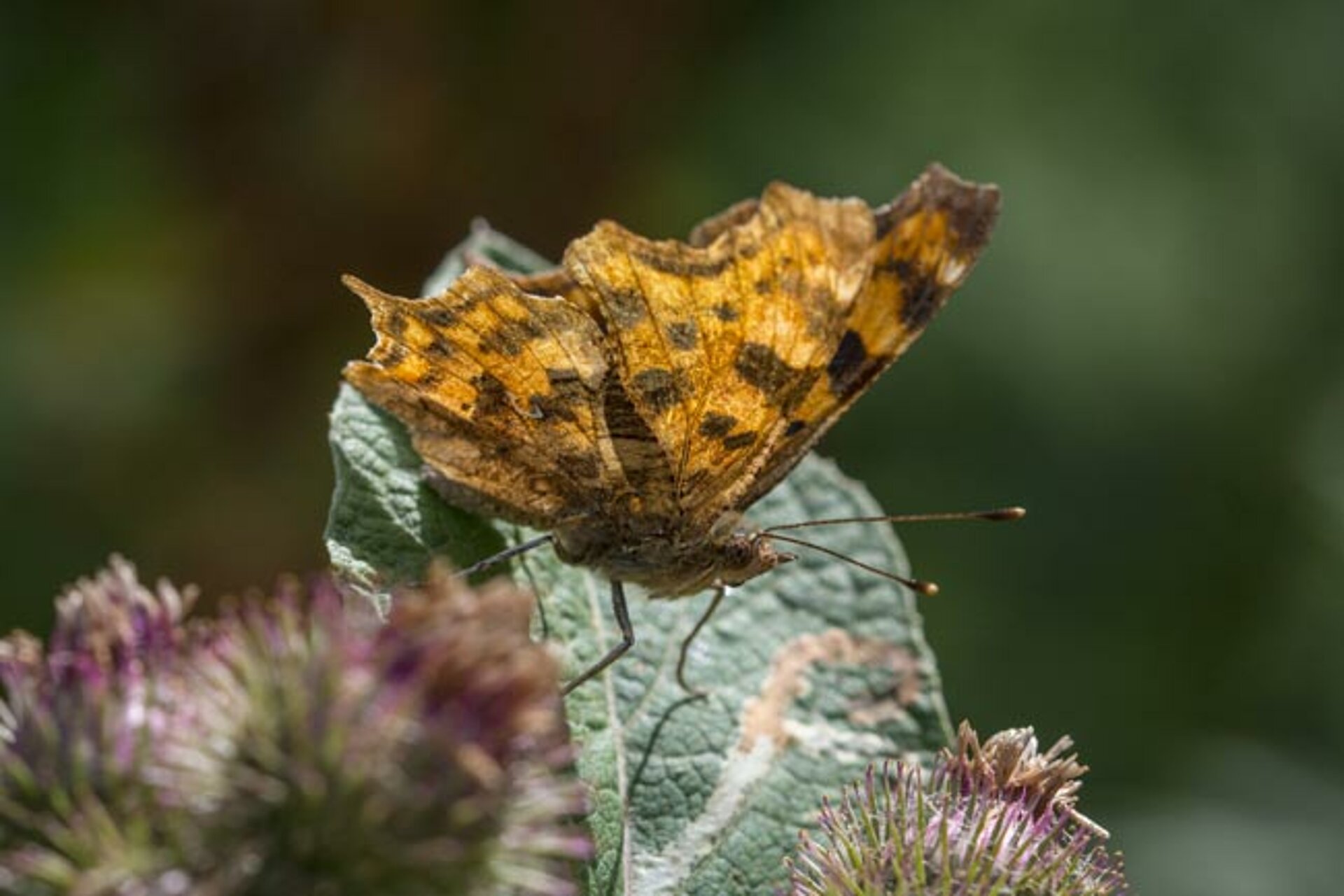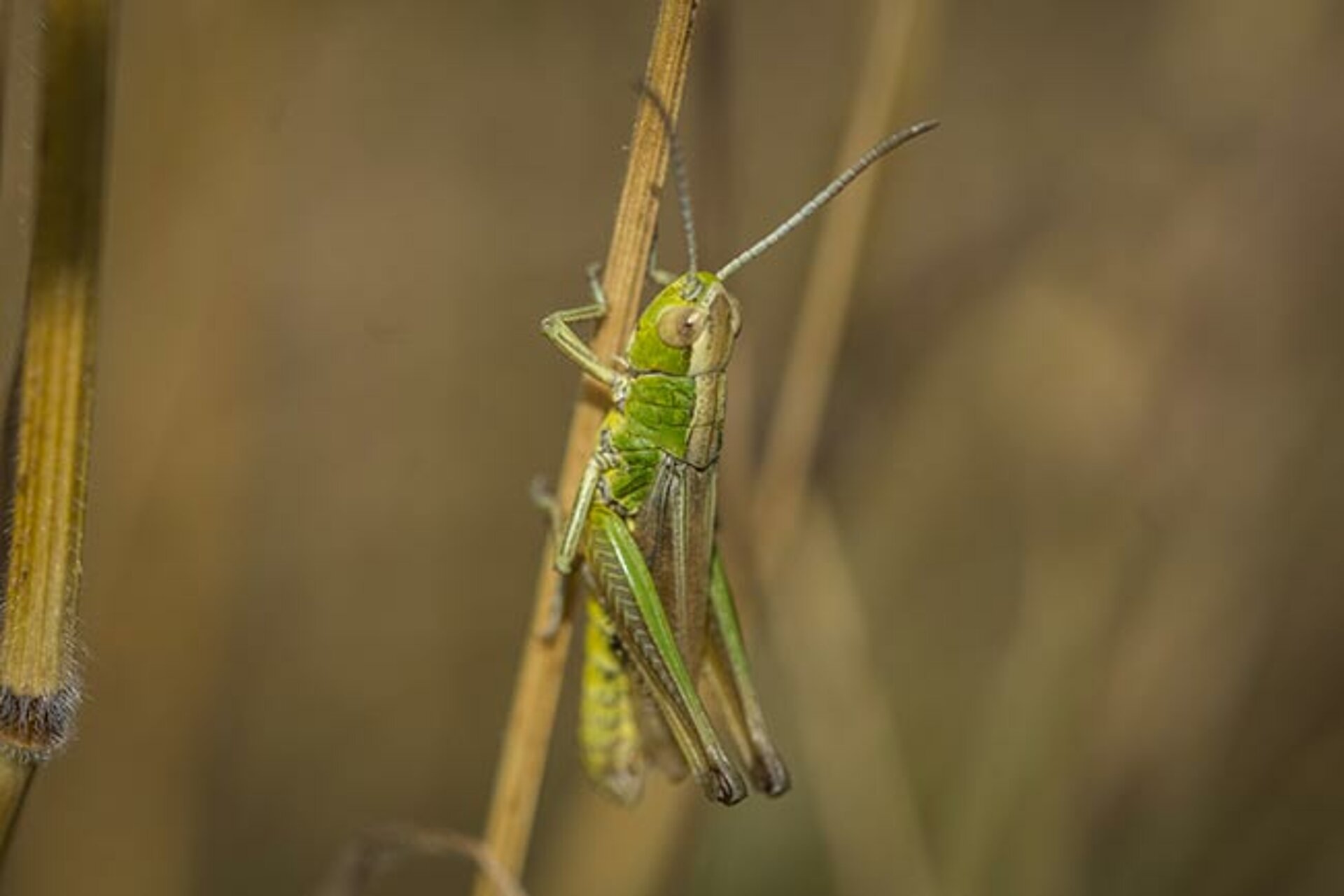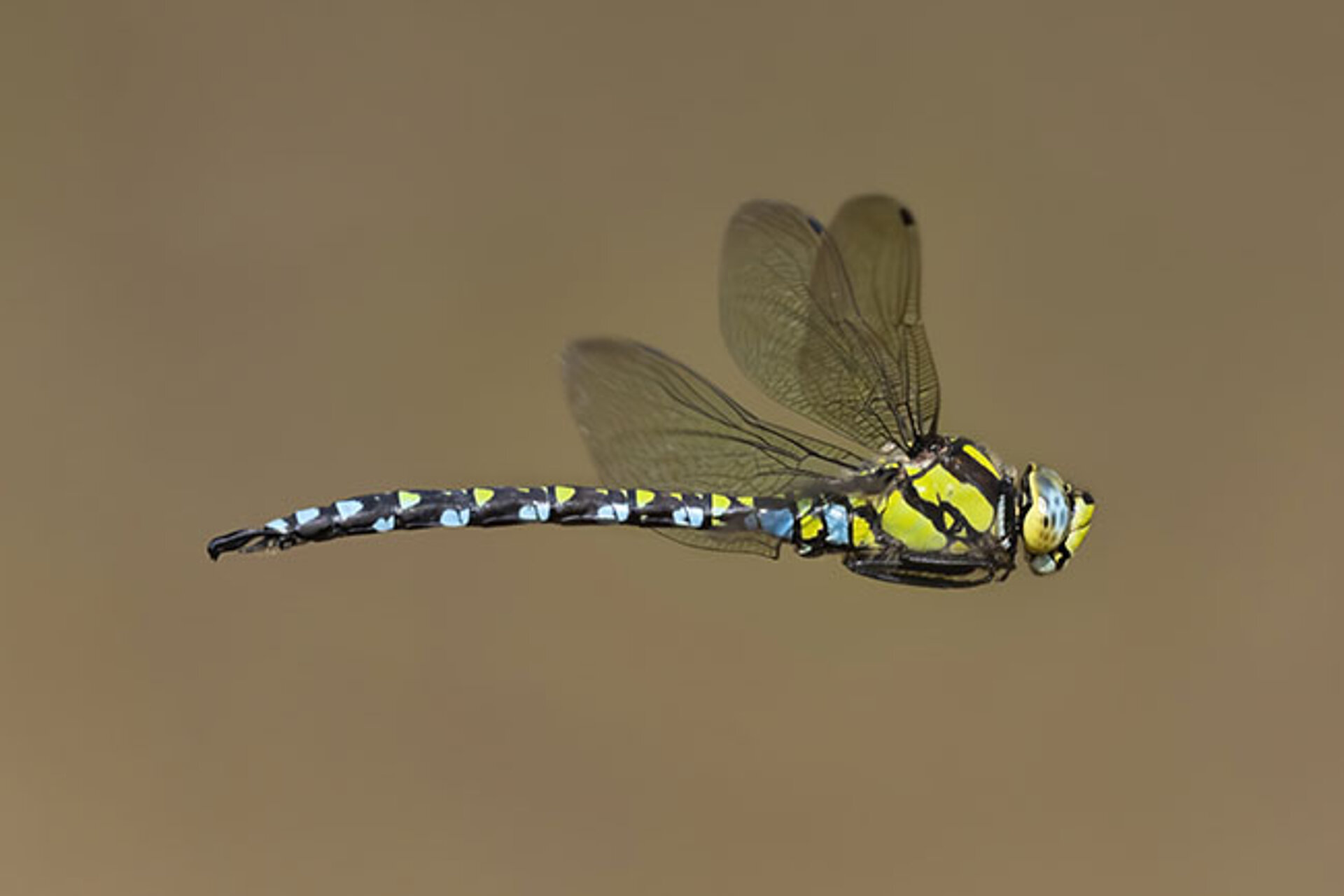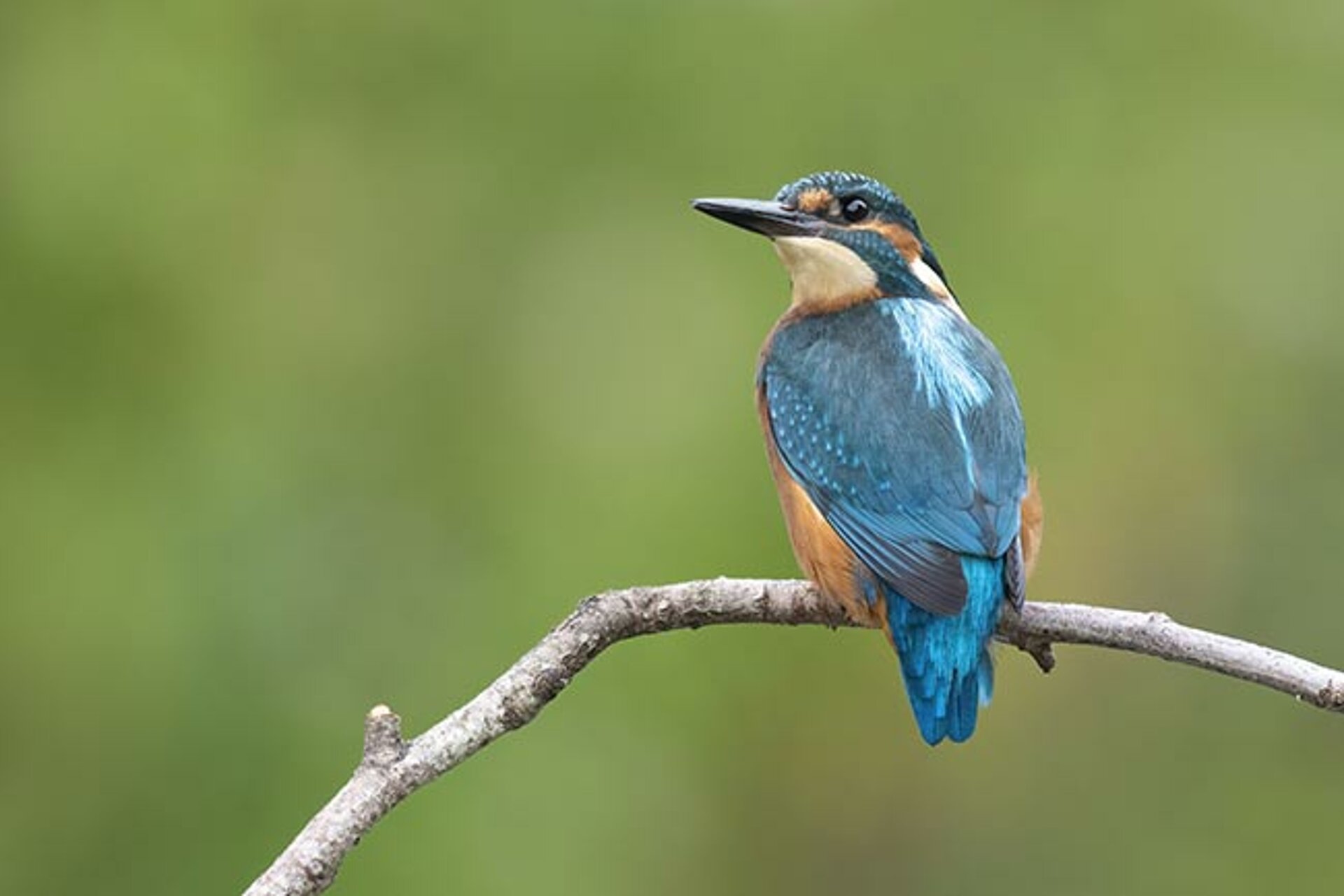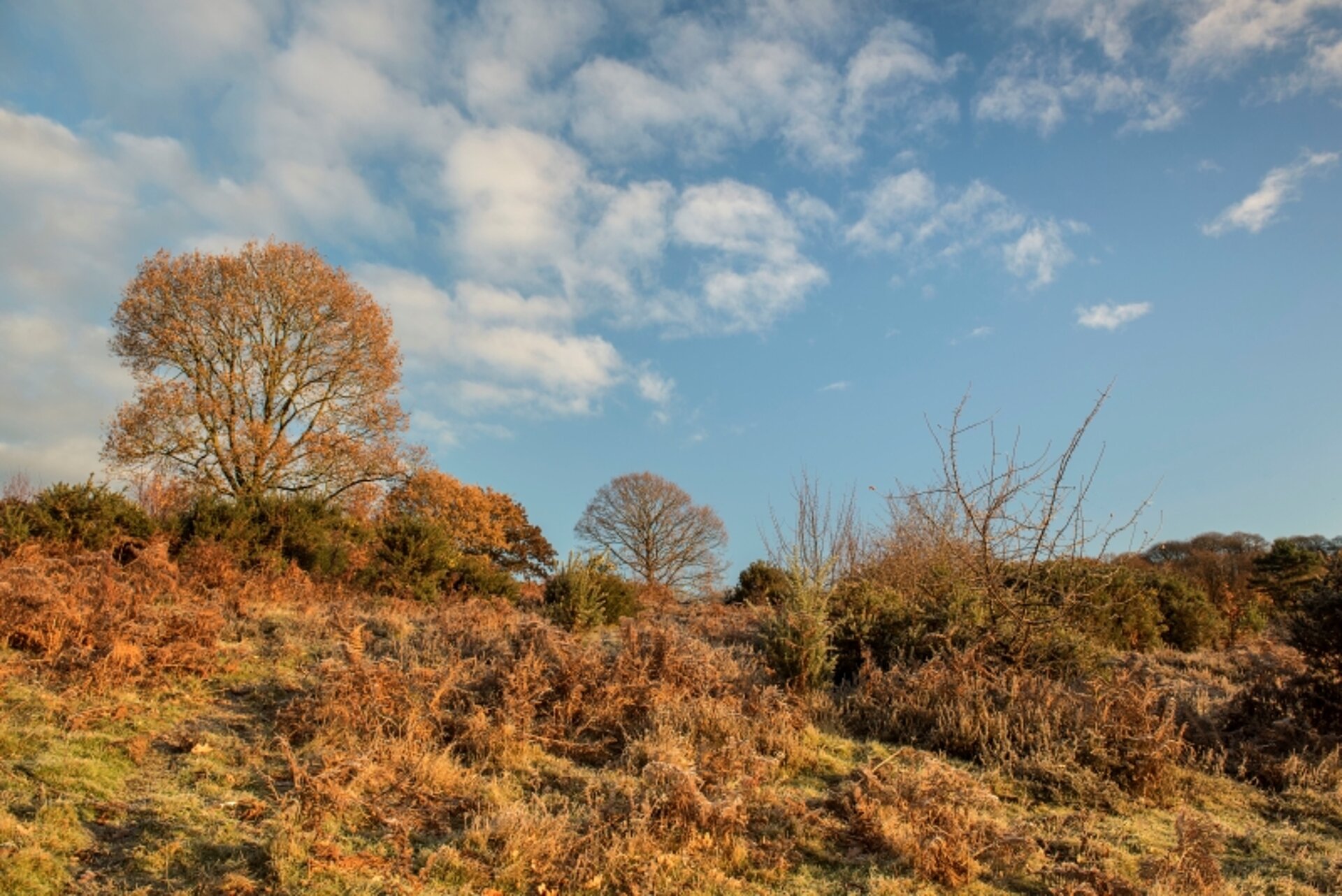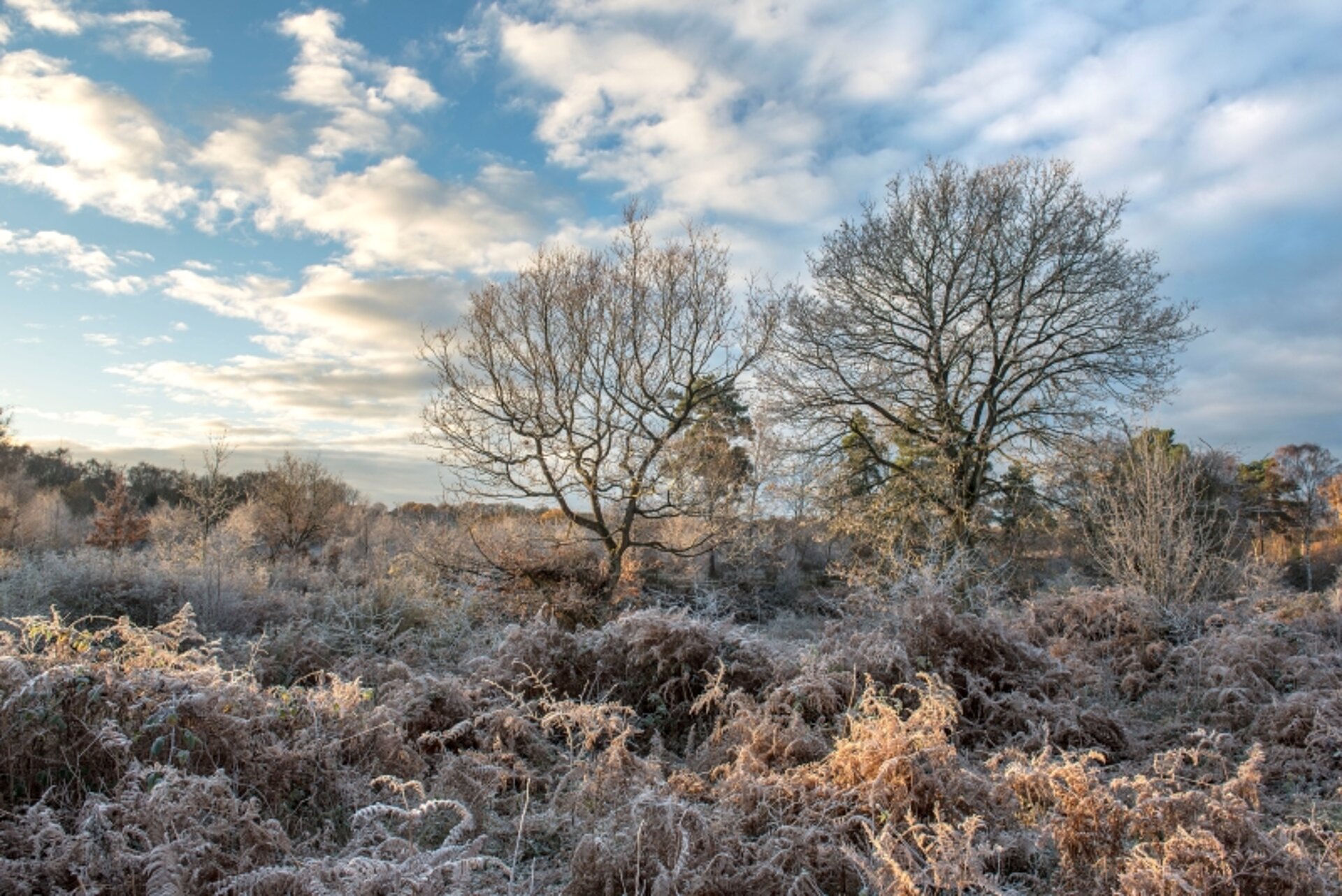RESEARCH AND CONSERVATION
Wildlife parks in the 21st century have a duty to work for the conservation of biodiversity. Here at the Safari Park, we take this very seriously and contribute to this cause in a number of ways.
Find out more about our research & conservation efforts…
RESEARCH AT WMSP
Our research mission is: “To facilitate and initiate research that contributes to species’ conservation and the welfare of animals in our care.”
Wildlife parks and zoos have an obligation to support and encourage research which will improve the welfare of captive animals. In addition, research at captive animal collections can generate knowledge on topics such as animal behaviour, physiology and reproduction. This knowledge can ultimately be used to assist species’ conservation.
West Midlands Safari Park’s Wildlife Team creates a list of priority projects annually. On the list, we lay out the pressing questions we seek to answer about our animals and our site.
Internal researchers, keepers, external researchers, and research students all contribute to getting these questions answered. We also contribute to projects initiated by external researchers from endangered species breeding programmes, other zoological parks, national and international conservation bodies and universities.
If you have an enquiry regarding conducting research at WMSP, or would like further details about projects we have completed/are undertaking, please contact the Research and Conservation Officer: research@wmsp.co.uk
Some of our long-term research projects:
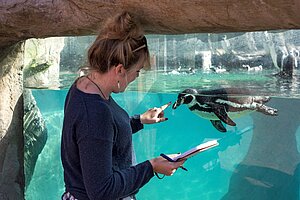
We have validated a method of sampling behaviour and substrate use for Humboldt penguins*. We used the information gathered by our research to inform an enclosure revamp, which has improved the penguin enclosure by giving the birds more land and a higher ratio of sand to concrete. To make it really easy to collect data in the long term, we designed, and are using a digital tool allowing keepers to enter data using phones or tablets. The results are automatically graphed and are available for managers and keepers to see immediately.
*Goodenough, A. E., Sewell, A., McDonald, K. (2023). Behavioural patterns in zoo housed Humboldt penguins (Spheniscus humboldti) revealed using long-term keeper-collected data: Validation of approaches and improved husbandry. Applied Animal Behaviour Science. 258.
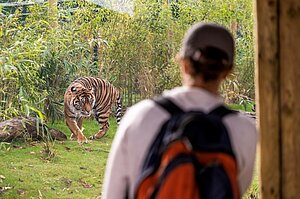
For several years, we have employed a standard method to collect activity budgets (what they do day-to-day) for our tigers. We use researchers and students to get up-to-date data for each individual every couple of years. Studying behaviour and activity in this way helps us monitor the welfare of our tigers. If we see any behaviours such as stereotypic pacing behaviour, we can put in mitigations to reduce it. With our continued monitoring, we can then assess whether our mitigations have been successful. Most importantly, we can ensure our tigers are expressing healthy species-typical levels and types of activity.

We have a dedicated rhino patrol in our Safari Drive. This is a fantastic opportunity to collect data and learn more about our rhinos. Keepers record the behaviour of each individual every 20 minutes. We are using the results to look at what factors (visitor numbers, weather, season etc), might be influencing rhino behaviour. We are also working with other animal settings, so we can ultimately look at differences in rhino behaviour between wildlife parks too.
Conservation at WMSP
Our conservation mission is: To support conservation of threatened species and habitats, locally, nationally and internationally.
Read more in our Conservation Policy – Click Here.
Being there for conservation, right where the wild relatives of our animals call home, is incredibly important to us. We have set up partnerships with five conservation NGOs, linked to some of our most iconic animals. We support their on-the-ground activities in the areas where the wild relatives of our animals live, donating to them quarterly.
Ex-situ conservation (conservation breeding)
Many of the animals in zoos and wildlife parks are threatened with extinction in the wild. These, and even some of those that are not yet classified as in trouble, are supported by well-managed conservation breeding programmes, known as EAZA Ex-Situ Programmes (EEPs)
For every EEP species, a ‘studbook’ keeper is in charge of deciding which animals should be paired with which mates based on their genealogy. Animals are moved between wildlife parks to support the EEP for their species, ensuring the populations of the animals in human care are as genetically diverse as possible, therefore acting important back-ups to the wild population of their species. WMSP takes part in 25 EEPs..
Find out about how zoos manage animal breeding programmes in the UK and Europe: click here.
HABITAT PROTECTION & RESTORATION
To help save animal species, we know it's vital to take care of their homes too! That's why at the Safari Park, we're committed to managing our land in a way that respects the nature around us.
Here are the two main ways we're working to support native wildlife:
-
We're creating areas filled with wildflowers, grasses, and native trees throughout our site.
This makes our entire park a welcoming place for British wildlife. Keep an eye out for our wildlife garden in the African Village area! -
We're fortunate to have a portion of the Devil’s Spittleful Site of Special Scientific Interest (SSSI) on our land.
Some of it is hidden from view, while part of it is home to our dhole habitat, where you can even drive through!
This area is one of the largest remaining heathland habitats in Worcestershire, which is incredibly important.
Over the past two centuries, Britain has lost up to 90% of its heathland. Traditional farming practices used to help maintain heathland, but changes in farming methods have led to monoculture farming or the transformation of heathlands into scrub and woodland.
We, along with other landowners of the Devil’s Spittleful, are actively working to clear scrub and remove invasive plants. We use methods like grazing animals to encourage the return of heathland plants, insects, reptiles, and birds. Through these efforts, we're creating a unique and diverse ecosystem that's rare to find.
